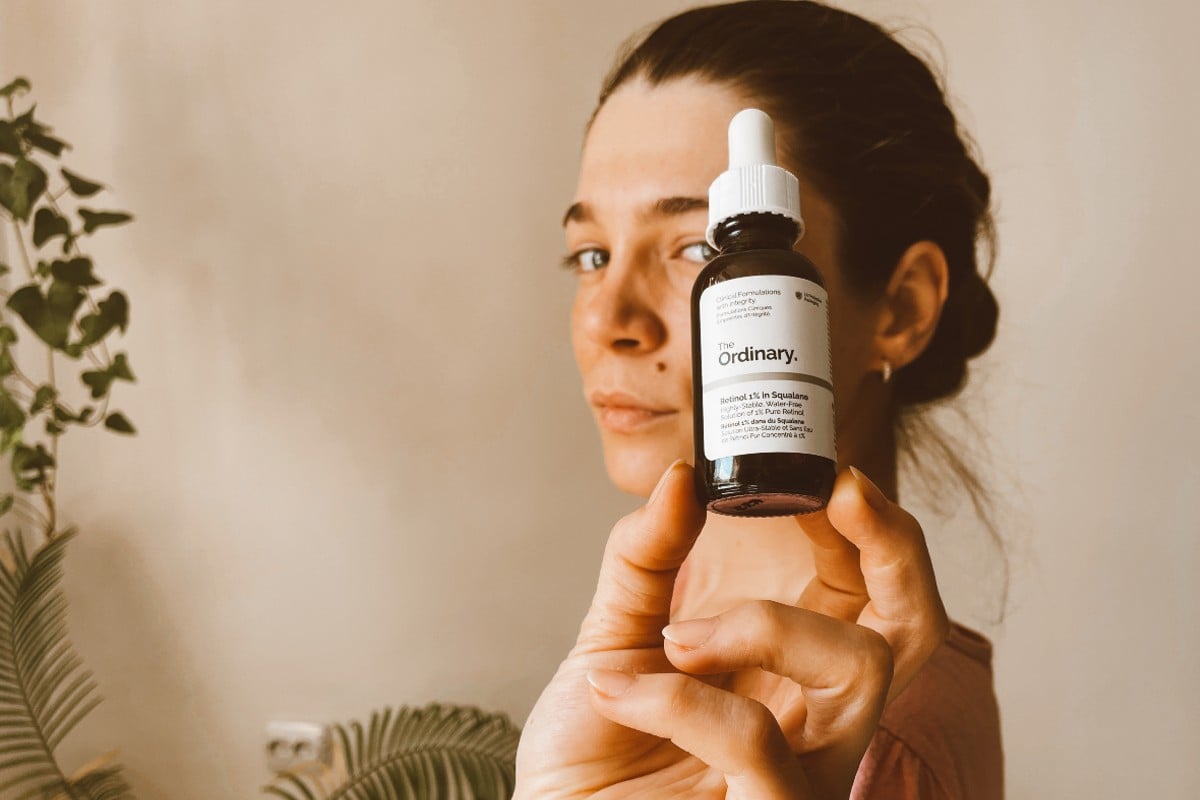Table of Contents
As you go through menopause, you may notice changes in your skin’s elasticity and hydration levels. The decrease in estrogen levels can lead to thinner and drier skin, along with a loss of collagen and elastin, which are essential for maintaining your skin’s firmness and elasticity. However, there are steps you can take to maintain healthy and hydrated skin during this time. In this blog post, we will explore the effects of menopause on your skin and provide you with insights on how to nourish and care for your skin to keep it looking and feeling its best.
Key Takeaways:
- Decreased Elasticity: Menopause can lead to a decrease in the production of collagen and elastin, causing the skin to lose its elasticity and firmness.
- Reduced Hydration: Hormonal changes can result in reduced oil production, leading to dry and dehydrated skin during menopause.
- Maintaining Healthy Skin: To maintain healthy skin during menopause, it is important to use moisturizers with hyaluronic acid and ceramides, incorporate collagen-boosting ingredients in skincare routine, and consider hormone replacement therapy if recommended by a healthcare professional.

The Science of Skin Elasticity and Hydration
While you may not give much thought to the science behind your skin’s elasticity and hydration, understanding the basics can help you better care for your skin, especially during menopause.
Skin Structure and Function
Your skin is the largest organ in your body, with a complex structure that includes three main layers: the epidermis, dermis, and subcutis. The epidermis is the outermost layer, providing a protective barrier, while the dermis contains collagen and elastin fibers that give your skin its elasticity and strength. The subcutis is the innermost layer, containing fat and connective tissue that help with insulation and cushioning.
Effects of Menopause on the Skin
During menopause, the body experiences a significant drop in estrogen levels, which can have a profound impact on your skin’s elasticity and hydration. Estrogen helps maintain collagen and elastin production, as well as promoting oil production to keep the skin hydrated. As estrogen levels decline, your skin may become thinner, drier, and less elastic, leading to wrinkles, sagging, and a loss of overall radiance.
Addressing Elasticity Concerns
To maintain the elasticity of your skin during menopause, it is important to understand the changes that occur and how they affect your skin. Menopause can lead to a decrease in estrogen levels, which in turn affects the production of collagen and elastin in your skin. Collagen and elastin are essential proteins that help maintain the firmness and elasticity of your skin. As a result of decreased levels of these proteins, your skin may become less firm and begin to lose its elasticity. This can result in sagging and the formation of fine lines and wrinkles.
Treatments to Improve Skin Elasticity
There are several treatments available to help improve the elasticity of your skin during menopause. These treatments may include topical creams and serums that contain ingredients such as retinoids, peptides, and hyaluronic acid, which can help stimulate collagen production and improve the overall firmness of your skin. In some cases, your dermatologist may also recommend procedures such as laser therapy or micro-needling to help enhance the elasticity of your skin.
Lifestyle Factors for Elasticity Enhancement
When it comes to maintaining the elasticity of your skin during menopause, there are several lifestyle factors that can play a significant role in enhancing your skin’s elasticity. These include eating a balanced diet rich in antioxidants and essential fatty acids, staying hydrated by drinking plenty of water, and engaging in regular exercise to improve blood circulation and promote healthy skin. Additionally, practicing stress-reducing activities such as yoga and meditation can help minimize the harmful effects of stress on your skin. This can lead to improved skin elasticity and overall skin health. This multifaceted approach can help you maintain the elasticity of your skin during menopause and beyond.
- Consuming a diet rich in antioxidants and essential fatty acids
- Staying hydrated by drinking plenty of water
- Engaging in regular exercise to improve blood circulation
- Practicing stress-reducing activities such as yoga and meditation
Combating Decreased Hydration
Lastly, let’s discuss the impact of decreased hydration on your skin during menopause. As estrogen levels decline, your body produces less natural oils, leading to drier skin. This can result in a loss of elasticity and plumpness, as well as an increase in fine lines and wrinkles. It’s essential to address this change in hydration to maintain healthy, radiant skin.
Hydration Strategies for Menopausal Skin
One effective strategy for combating decreased hydration in menopausal skin is to increase your water intake. Staying hydrated from the inside out can help maintain moisture levels in your skin. You should aim to drink at least eight glasses of water per day. Additionally, incorporating hydrating foods into your diet, such as fruits and vegetables with high water content, can further support your skin’s hydration levels.
Ingredients and Skincare Products That Help
When it comes to skincare products, look for those containing hyaluronic acid and glycerin. These ingredients are known for their ability to attract and retain moisture, helping to plump and hydrate the skin. You should also consider incorporating a rich, hyaluronic acid serum into your skincare routine to add an extra layer of hydration. Additionally, using a moisturizer with ceramides can help reinforce the skin’s natural barrier, preventing moisture loss.
Holistic Approaches to Skin Care
However, taking care of your skin during menopause involves more than just external products. Holistic approaches that address the underlying factors affecting your skin’s elasticity and hydration are essential for maintaining healthy skin during this time. In addition to using effective skincare products, incorporating lifestyle changes and holistic practices can greatly improve the overall health and appearance of your skin.
Diet and Supplementation
During menopause, hormonal changes can affect your skin’s elasticity and hydration levels. Eating a well-balanced diet that includes nutrient-dense foods such as fruits, vegetables, whole grains, and lean proteins can provide your skin with the essential vitamins and minerals it needs to maintain its elasticity and hydration. Additionally, incorporating omega-3 fatty acids from sources such as fish, flaxseeds, and walnuts can help to promote skin elasticity and combat dryness. You may also consider incorporating supplements such as collagen, hyaluronic acid, and vitamin C to support skin elasticity and hydration.
The Role of Physical Activity and Sleep
Regular physical activity can help improve blood circulation and promote the delivery of essential nutrients and oxygen to your skin, which is crucial for maintaining its elasticity and hydration. Additionally, exercise can help reduce stress levels, which can have a positive impact on your skin health. Getting an adequate amount of sleep is also essential for skin health during menopause. During sleep, your body goes into repair mode, which is important for maintaining skin elasticity and hydration. Aim for 7-9 hours of quality sleep each night to support your skin’s overall health.

Conclusively
You now have a better understanding of how menopause can affect your skin’s elasticity and hydration levels. The decrease in estrogen during menopause can lead to loss of collagen and elastin, resulting in sagging and wrinkling of the skin, as well as a decrease in oil production leading to drier skin. To maintain healthy skin during this time, it’s important to use skin care products with ingredients like hyaluronic acid and collagen to promote hydration and improve elasticity. Additionally, incorporating a healthy diet, regular exercise, and proper sun protection can also help preserve the overall health and appearance of your skin during menopause.
FAQ
Q: How does menopause affect the skin’s elasticity and hydration levels?
A: During menopause, the body’s production of estrogen decreases, leading to a decrease in collagen and elastin in the skin. This results in reduced skin elasticity and firmness. Additionally, the skin’s ability to retain moisture diminishes, leading to dryness and increased risk of wrinkles.
Q: What can be done to maintain healthy skin during menopause?
A: To maintain healthy skin during menopause, it is important to prioritize skincare. Using moisturizers with ingredients such as hyaluronic acid, glycerin, and ceramides can help maintain hydration levels in the skin. Additionally, incorporating products containing retinoids and peptides can aid in boosting collagen production and improving skin elasticity. Protecting the skin from sun exposure with sunscreen is also crucial in preventing further skin damage.
Q: Are there lifestyle changes that can support skin health during menopause?
A: Yes, making healthy lifestyle choices can contribute to maintaining skin health during menopause. Eating a balanced diet rich in antioxidants, vitamins, and omega-3 fatty acids can support skin elasticity and hydration. Staying well-hydrated by drinking plenty of water is essential for overall skin health. Engaging in regular exercise can also improve circulation and contribute to healthy skin. Finally, avoiding smoking and excessive alcohol consumption can help prevent further damage to the skin.







